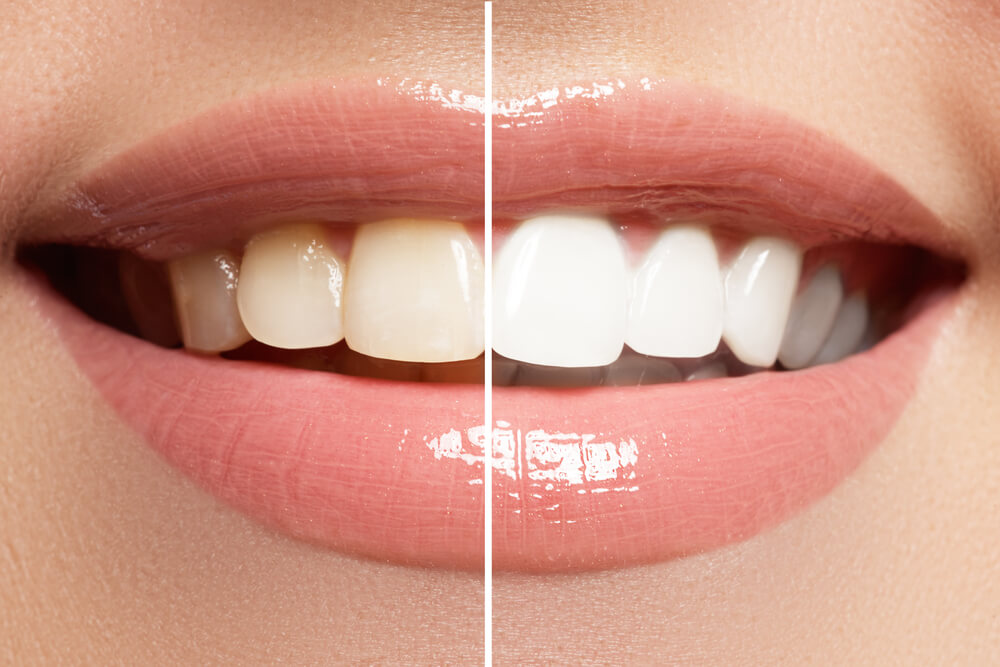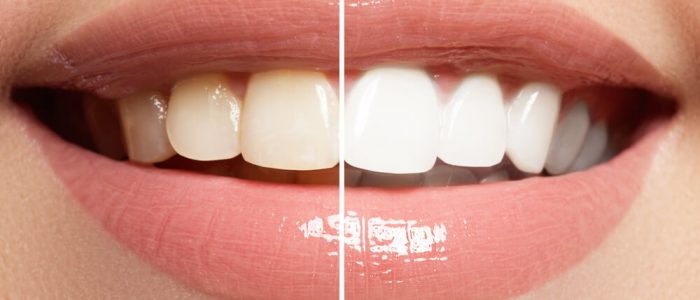How Long Does Teeth Whitening Last?

Teeth whitening is a popular method of achieving a brighter, more confident smile. How long teeth whitening lasts depends on many factors, from the method of whitening to the types of foods you eat after a whitening treatment.
Northside Dental Clinic in Springfield, Missouri, explains how long different teeth whitening methods last.
How Long Does Teeth Whitening Last?
Teeth whitening can last from 2-3 years, six months, or even less time than that; it varies based on the person’s age and whether or not they eat or drink things that stain teeth, or smoke, for that matter.
The fastest way to whiten teeth is to bleach them in a dental office. The procedure usually takes 1 to 2 hours.
Teeth Whitening Methods
How long your tooth whitening lasts will depend on the method you use. After a whitening appointment, the results can last up to a year or more (with proper care).
In-Office Bleaching or Dental Chairside
This is the longest-lasting and most effective teeth-whitening treatment method. Dentists can monitor the process to ensure gums are protected from the abrasive effects of bleach.
Dental offices also have access to a stronger whitening solution than what you’ll find in stores.
There are two processes to choose from:
- Laser teeth whitening using an LED light alongside hydrogen peroxide
- Standard hydrogen peroxide whitening
The results are long-lasting but not permanent.
Consuming coffee, red wine, and dark-colored food items will only lead to your teeth becoming stained again, requiring you to get further bleach treatments.
At-Home Teeth Whitening Trays
At-home whitening kits are given by your dentist to fit your mouth. A whitening agent is put into the trays, and these are worn daily for small periods of time. It can take 2-3 weeks.
Whitening Toothpaste
Whitening toothpaste has to be used several times a week for two to six weeks. It often doesn’t give results. When it does, it lasts for three to four months.
Whitening toothpaste often contains abrasive ingredients like hydrogen peroxide. Make sure you use enamel-protection toothpaste to balance out its effects.
Whitening Strips
Over-the-counter whitening strips or gels can last for six months. You can expect results in four to six weeks. If you want longer-lasting results, consider scheduling professional teeth whitening at a dental clinic.
Whitening Pens
Teeth whitening pens offer a quick and temporary fix to yellow-colored teeth — not for long-term results. The brush tip of the pen can easily be applied directly to your teeth for touch-ups throughout the day.
Whitening Mouthwash Rinse
Whitening mouthwash contains hydrogen peroxide and low concentrations of other bleaching agents like sodium hexametaphosphate. The effects are only temporary and usually work on surface stains, lasting approximately 24 hours.
How to Make Teeth Whitening Last Longer
Find a good treatment option that works. We recommend in-chair bleaching treatment or LED whitening treatment.
Minimize food and drink that stain teeth and brush twice a day to keep them as white as possible for as long as possible.
Factors that Impact Teeth Whitening Solutions
Type of Stains
Internal Stains
More difficult to treat, intrinsic stains develop inside the teeth. Taking medications like tetracycline or having a tooth that was knocked out and not replaced can cause internal stains. These require professional teeth whitening services.
External Stains
Extrinsics are more commonplace as they develop on the surface of the teeth. Tooth-whitening solutions work to clean these stains.
Stains like these are caused by:
Teas
Coffee
Cigarettes
Red Wine
Dark Chocolate
Any food with colorants
Natural Tooth Color
Some people naturally have yellow-looking teeth, whereas others have whiter-looking teeth.
Those with yellow teeth see the biggest transformation after a whitening appointment compared to those with naturally pearly white teeth.
Aging
Teeth whitening just doesn’t last as long when you’re in your 30s as it does in your 20s. This is because the protective enamel on the surface of the tooth erodes as we age.
The Type of Food and Drink You Consume
Colorful or acidic foods like berries or tomatoes will color your teeth fast. Be mindful of how often you consume these.
If you’re drinking dark-colored beverages like coffee, tea, or soda, be sure and have water nearby to rinse your teeth with.
How Well You Care for Your Teeth
Are you brushing? Are you flossing? It’s important that you brush twice a day and floss regularly; trapped remnants of food in between teeth will cause discoloration and hard-to-clean stains.
Side Effects of Whitening Teeth (Too Much)
The ingredients in most tooth whiteners can cause gum and tooth sensitivity, though it’s not long-lasting. You’re also probably wondering: “Can you over-whiten your teeth?”
The answer is yes.
Some side effects can include:
Discoloration: too much whitening can actually cause discolored or yellow teeth.
Gum burns and irritation: often occur from at-home gel trays or in-office whitening.
Gastrointestinal irritation: if you happen to swallow a whitening product, it creates a burning sensation in the stomach and throat.
Damage to enamel: the protective barrier on your teeth is eroded when you apply too many abrasive bleaching solutions.
Find a Dentist for Teeth Whitening in Springfield, Missouri
Northside Dental Clinic offers safe, effective, and professional teeth whitening treatments to make your smile brighter for longer. Contact us today to schedule your appointment.

